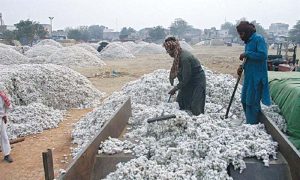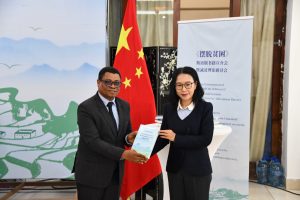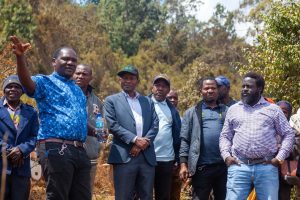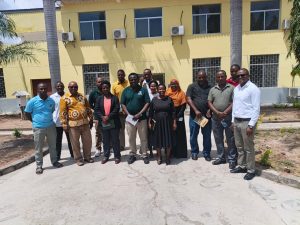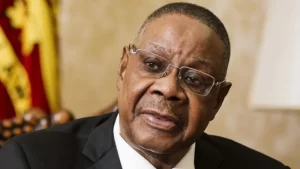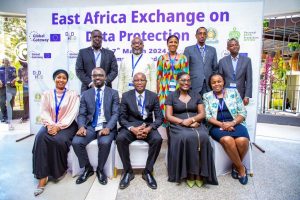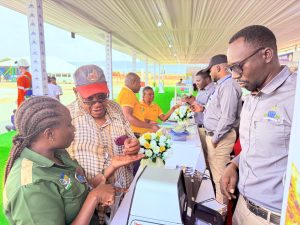TARI Ukiriguru, Cotton Board Launches Efforts To Bolster Cotton Production In Morogoro Region
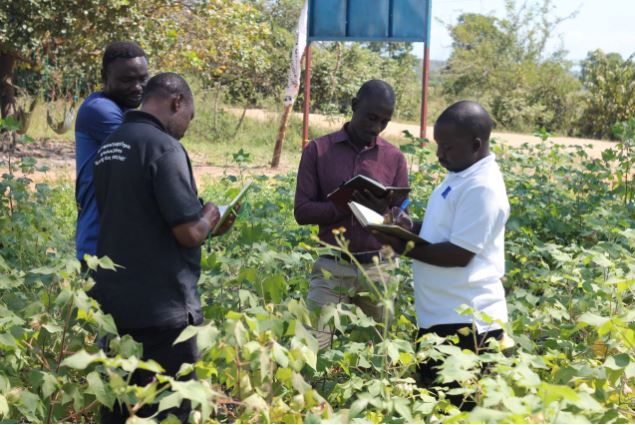
By Senior Writer VALENTINE OFORO
THE Tanzania Agricultural Research Institute (TARI) through its Mwanza -based Ukiriguru Centre is bringing efforts with the Tanzania Cotton Board (TCB) to implement a strategic initiative targeting to promote cultivation of cotton in Morogoro region.
The development which has already fetched promising results surfaced following research to prove that presence of friendly weather and soil for the production of the fibre crop in Ulanga district of the region mapped in the country’s eastern zone.
The strategy, which is part of implementation of Cotton Victoria Project (CVP), gears to transform the area into the country’s best cotton hub and have so far impacted over 600 farmers in the area.
Speaking recently during staging of a special farmer field day (FFD) held at Lupill village within the district in question, TCB acting director, James Shimbe said the farmers in the area have demonstrated high spirit to adopt growing the economic cash crop.
“We have been very impressed with the manner to which majority of farmers here have started to grow cotton, triggered by the inception of this project which runs under funds from the government of Brazil in partnership with TARI Ukiriguru,” he expressed.
He ensure that the state-owned board will continue working in sync with TARI to elevate production of the crop within all eleven regions in Tanzania with potential for growing it.
Detailing over the initiative, Dr Paul Saidia, the project director who doubles as director for TARI Ukiriguru Centre said the project is training the farmers to adhere to ten recommended principles needed for professional cultivation of cotton.
“Among the best agronomic practices we’re training the farmers here include how to manage soil fertilisation, new planting spaces, as well as management of cotton plants, from planning to harvesting,” he briefed.
For instance, he said the project has trained the farmers to adopt new planting spaces of 90 centimeters from row to row, and 30 cm from from hole to hole, bringing the number of cotton plants to at least 44, 444 per acre.
“Through this new planting spaces the farmers are now managing to harvest bumper,” he added.
He said introduction of the new planting spaces have help to attract more farmers in the area to opt growing the crop ever before, signaling the good future of production of the crop in the area.
And he added, the project plans to establish a good number of demo plots to help extensional officers to practically disseminating the farmers with the recommend practices for the cultivation of the crop.
He thanked the government of Brazil for bankrolling the project, as well as all other involving stakeholders from within and outside the country, saying the centre will stand at forefront to ensure for targeted results.
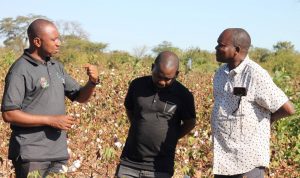
Speaking for his part, Thomas Tiluhongelwa, the project focal point for the Cotton Victoria Project said the farmers in the region are now realizing up to 2000kgs.
“After being introduced to the new planting space through the project, the farmers are currently managing to harvest up to 2000kg, the impressive records which keep on attracting more farmers to venture into cotton production,” he briefed.
Adelina Mhonga, one of the project’s beneficiary farmers in the region said the project has assisted them to elevate their production and productivity into brighter future.
“For instance, after adopting new planting space, during the agricultural season of 2022/23 I managed to yield a lot, to the tune of getting money to procure livestock,” she said.
Cotton Victoria Project (CVP) is a brainchild between the government of Brazil and the Tanzania Agricultural Research Institute (TARI) Ukiriguru Center with an eye to increase the institutional capacity and human resources training in the use and dissemination of technology in the cotton production sector.
The USD 5,802,019.08 worth project which is implemented jointly with others stakeholders including Tanzania Cotton Board (TCB), BioSustain Tanzania Limited, Brazilian Cooperation Agency (ABC), Brazilian Cotton Institute (IBA), and the Federal University of Lavras (UFLA).
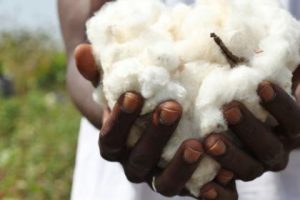
Currently the project is being implemented in at least eleven regions across the country, including Mwanza, Simiyu, Geita, Shinyanga, Tabora, Katavi, Kigoma, Singida, Tunduma, Morogoro, and Mara.
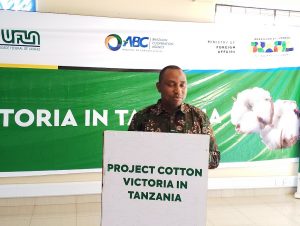
Through out the project, a total of 217,060 farmers in the country have successfully adopted the new planting space.

